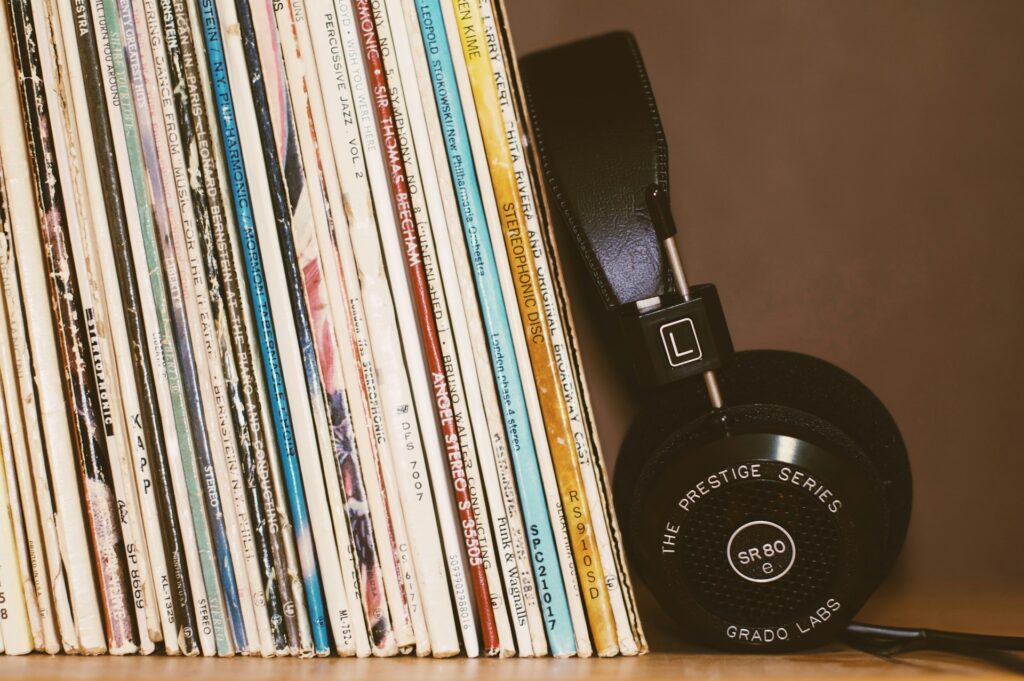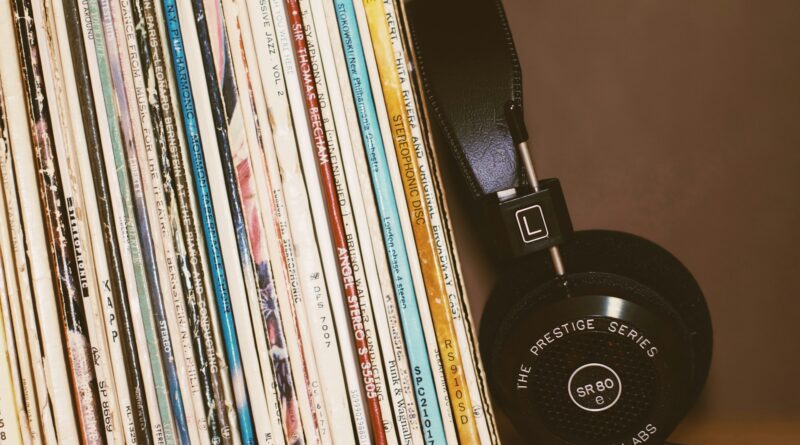The Importance of Music in Dementia Care
JADCOM Media posts and/or links to retailers can be advertising, sponsored, or affiliate links.
We may earn a small commission from them. Thank you.
“Is music good for individuals living with dementia?”
It would be a safe bet to say music is good for all of us. Many of us relate to the featured image of a turntable arm resting on a rotating vinyl platter. Others connect with the latest fancy phone and wireless ear buds to listen to our favorite songs.
Fortunately, some of us remember the joy that each format has brought us. It turns out, music in Dementia Care is also critically valuable!
But the benefits are more than just fondly remembering how we consumed music, and of course, the music itself. From children getting better in math by learning how to count notes, to us oldsters being transported to a specific place and time just by hearing a song, the benefits are equal to the sheer enjoyment.
(For me, The Guess Who’s “Undun” takes me back to an elementary school dance. Boys on one side of the room; girls on the other. You know the setting, don’t you?)
However, there are many questions about the role music plays when caring for someone with memory loss:
- How does music affect dementia?
- Is music good for dementia?
- What is good music for those living with dementia?
- Plenty more whats and hows!
You want to do the right thing, but you also want to make sure you pursue it in a valuable and helpful manner.
The Science of Music
Here’s what the National Institutes of Health has to say about the importance of music for those living with dementia:
“The effects of music go beyond the reduction of behavioural and psychological symptoms. Individual preference of music is preserved throughout the process of dementia. Sustaining musical and interpersonal connectedness would help value who the person is and maintain the quality of their life.”
The Positive Effect of Music Therapy
The American Music Therapy Association is a 501(c)3 non-profit organization whose mission is to advance public awareness of the benefits of music therapy. They work to:
- Support and strengthen the music therapy profession.
- Expand access to music therapy.
- Raise awareness about its benefits.
- Support research and clinical trials.
- Empower music therapists to serve diverse populations.
Persons who complete one of the approved college music therapy curricula (including an internship) are then eligible to sit for the national examination offered by the Certification Board for Music Therapists. Music therapists who successfully complete the independently administered examination hold the music therapist-board certified credential (MT-BC).
A trained Music Therapist does more than deliver therapeutic effects of music interventions for those with cognitive decline. They help incorporate meaningful music to help all forms of dementia. Whether practiced in care homes, or even at the family barbecue, the effects of music therapy can be significant.
So What Does This Mean?
Simply, music is good. It helps improve behavior and supports the individual psychologically. Someone’s favorite music is still their favorite music, even though they are now living with dementia. It connects to specific parts of the brain and maintains their quality of life.
That’s enough for me!
How to Incorporate Music in Dementia Care
It seems there are as many different ways for family members to incorporate music into dementia care as there are dementia caregivers. OK, that may be a bit of a stretch, but the point is there are many different approaches, so we can be confident there is one right for your particular situation.
To emphasize that point, here is a wonderful example which could be are two examples of organizations accomplishing great things: one in the U.S., and one in the U.K. They have approaches and techniques that can be valuable to all of us.
Music and Memory
Based in New York, this non-profit organization “brings personalized music into the lives of the elderly or infirm through digital music technology, vastly improving quality of life.” This quote from their website really says it all.
They train professional caregivers, other professionals, and family caregivers for something that I might call “musical intervention.” They teach them how to use a variety of audio players to help those living with Alzheimer’s Disease and other dementia symptoms. The purpose is to help “reconnect” them through musical memories triggered by their favorite music.
Here’s a great example of a dramatic and frankly, heartwarming transformation using familiar songs. You will be hooked in less that 60 seconds!
Of course, not every circumstance will be this dramatic. But based on the science and this as an example, there are many who could benefit greatly!
The Utley Foundation: Music for Dementia
The Utley Foundation has been supporting and championing the use of music and music therapy to improve the quality of life of people living with dementia since its inception. Their goal is simple – they want to make music available for everyone living with dementia.
We’re leading the call to make music an integral part of dementia care.
I had the pleasure of speaking with Programme Director Grace Meadows about this wonderful initiative when it was in the early stages of rollout. Watch the video below to see more of the power of music in dementia care!
Why Am I Sharing This With You?
What sparked this idea was hearing that a song written and performed by a good friend, Billy Ray Deiz, was selected for a compilation album. The compilation, called “Keepin’ it Country” has 17 cuts from various artists.
With his contribution of “Workin'” he’s been called “A Woody Guthrie for the 21st Century”
Congratulations, Billy Ray!
Now I’d be the last person to force a certain genre, artist, or song on someone, but there might just be Woody Guthrie fans out there. If not, maybe there’s country fans. Even if I struck out there, almost everyone reading this enjoys music in some way, shape, or fashion.
The point: we’ve established there are a number of ways to incorporate music into the everyday lives of dementia patients. Opening our thoughts to be aware of a wide variety of genres and artists is the first step in uncovering those valuable musical nuggets that can light up our loved ones experiencing mild cognitive impairment, or even much later stages as we’ve already seen.
Something for Everyone
It’s often said that if you know one person living with dementia, you know one person living with dementia. Everyone is different in how dementia affects them. That same individuality extends to fondness for music and how we connect to our musical memory.
Fortunately in music, there are nearly unlimited styles, genres, sub-genres, and further variations in each of those. Luckily there’s a fit for everyone. Any given musical style might not be one that resonates with your loved one, but than again, it just might.
You may not have the same clear understanding of a favorite musical style for your loved one that my family has for me. (Yes, the late Jimmy Buffett is number 1, then it’s everything else!) The goal is to find that favorite style, genre, artist, or song that lights them up. The challenge is to find ways to surface those favorites to turn them into musical activities.
Scatter it Around
Music may not currently be a part of your everyday lives. You might not be sure how to introduce it. First, think about how you structure your days. Here’s some ideas:
- Do you ride together in the car frequently?
- Is there a quiet time that borders on boredom?
- Are there regular activities or chores that could be “energized” with some music?
You get the idea. Try out different activities or situations to introduce a song or album, and then see how it goes. The worst that will happen is that you’ve identified a song that isn’t liked. Hopefully, you’ll start to build a playlist that gets better and better with each song added.

The Beneficial Effects of Music on Executive Function
Music has a special power to help Alzheimer’s patients and other people with dementia think and remember better. When they listen to familiar songs, it activates parts of their brain that handle memories and emotions, helping to improve cognitive functions. This can make them feel happier and more connected to the world around them.
Music also helps improve their ability to plan, solve problems, and focus on tasks, which are all important skills known as Executive Function. Although dementia can make things hard, music can be like a helpful friend, making life a bit easier and more enjoyable.
Music & memory work together. When people with dementia listen to music they know and love, it’s like magic for their brains. It wakes up their memories and makes them feel good inside. Plus, it’s like doing exercises for their brain—it helps them think clearer and stay more focused on what they’re doing.
Although remembering things might be tough for them, music steps in and lends a helping hand, making everyday life a bit smoother.
Enjoy the musical journey!



